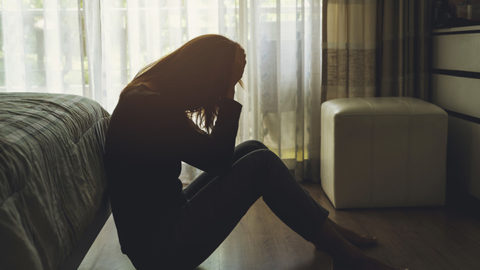In January, the World Health Organization (WHO) declared the outbreak of a new coronavirus disease, COVID-19, a Public Health Emergency of international concern. Later on, in March, COVID-19 announced a pandemic. News outlets worldwide took it upon themselves to sensitize the masses on the disease, its effects, and the best protective measures to avoid contracting the virus. What followed was a series of steps countries took to try and curb the spread of the virus. Our way of life as we know it was altered; countries declared lockdowns, and travel restrictions were put in place.
It’s Human Nature To Panic During These Trying Times
Our resolve continues to be tested to this day, and our mental strength. News about the virus and its effects can cause some of us to feel anxious and distressed. You are bound to experience stress and unimaginable pressures at times like these. Questions like, will I survive? How can I protect my loved ones? If I lose my job, how will I survive? Will people start castigating me because I work with COVID-19 patients? And It’s right to panic. It’s human nature.
Over the early weeks of the pandemic, people were coping well; humans generally face emergencies with strength. As the situation escalated and people were confined to their homes for longer, despondency and depression started kicking in. Why? Because as challenges become more drawn out, we tend to do less well; it’s just our nature as humans. So now, more people are experiencing anxiety and uncertainty, burnout, and self-isolation, which makes some lonely and bored.
Do Not Let Coronavirus Anxiety and Stress Get The Best of You
Fear of bodily injury is the most potent solicitor of anxiety. During this pandemic, we fear illness and death, both now and in the future. The sequence of events leading up to the eventual lockdown in most countries revealed our true nature. During the early stages of the breakout, efforts were directed towards improving the government agencies to better deal with the problem at the time. As the threat risk increased, we lost our sense of security and came up with measures, like airport checks, to help us regain it. And we did. But now, more people are experiencing fear and anxiety. It’s no surprise, mainly because most news outlets are focused on showing the gravity of the situation. Here is how you can cope with stress.
-
Realize it’s normal to have anticipatory anxiety.
In situations of uncertainty, you will definitely experience anticipatory anxiety. You’re worried that your loved ones may die, and you suppress the thought. The best way to go about it is thinking of the best possible outcome, like realizing that your body is strong enough to develop antibodies. Or you may experience mild, uncomfortable, but not dangerous symptoms.
-
Devote some time during the day to worry (no more than 15 minutes)
Stay-at-home orders affect a lot of people around the world. Instead of worrying about the virus the whole day, dedicate at most 15 minutes to worry. Write down your thoughts; externalize your anxious thoughts—vent using the pen.
Then continue with your daily activities. And if you have those worries later in the day, let them be. Remind yourself that tomorrow will be better, and move on with your day swiftly.
-
Occupy Yourself (Dance or Exercise)
Physical activity is a sure way to curb anxiety. And you lift your mood while at it. During trying times, like this pandemic, you are bound to experience low moods. And exercise has been scientifically proven to help people deal with low moods; movement has the same effects as antidepressants. If you love dancing, then dance away Coronavirus bad vibes. These are just a few tips. There are more ways to help you cope.
Lessons From The Pandemic
Are you an extrovert or an introvert? The general view was that extroverts suffer more than introverts during this pandemic. But studies suggest otherwise. A Virginia-based research consultancy found that introverts are more likely to experience mental health issues than extroverts. So check up on your introverted friends/family.
Okay, let’s acknowledge that this pandemic will last a while. So what can we do? We have to accept that there will be uncertainty throughout this whole period. We will only get the answers we want once; it will take time. Short-term solutions, in this case, will result in long-term problems. So let us be patient. This is when our patience, maturity, and level-headedness will be tested. Some countries are slowly easing their lockdown measures, which is when our level-headedness will be tested.
Hundreds of stories are being published on the effects of the Coronavirus. Each day depicts the severity of the pandemic. News of people dying and businesses going under show the epidemic as bigger, closer, and more dangerous than it actually is. This can significantly affect some of us. You are advised to take a passive interest in the news. Avoid it as much as possible.
Essential threats receive more attention than they deserve. So some of the attention the Coronavirus s receiving may be unnecessary and produce unnecessary worry. From the numbers, you will realize that the recovery rate is high. And the infection rate is not that high too. Take the necessary precautions, but don’t be paranoid.
Parting Shot
These times are hard, but they will come to pass. Do not let temporary situations affect your long-mental health. But if you have any issues, you can always contact an online psychologist. And especially now when social distancing is of the essence. Stay safe and mentally sane.






